In the ever-evolving landscape of kitchen appliances, the air fryer has emerged as a staple, promising healthier cooking alternatives without compromising on flavor. As consumers seek innovative and efficient cooking solutions, the role of Original Equipment Manufacturers (OEMs) in air fryer production has become increasingly significant. This article delves into the importance of mold making services in air fryer production, showcasing how they contribute to the success of OEMs and the market as a whole. We’ll also explore case studies of successful OEM partnerships and look ahead to the future trends and predictions shaping the air fryer market.
The Rise of Air Fryers in the Global Kitchen
In recent years, the culinary landscape has undergone a remarkable transformation, with one kitchen appliance emerging as a game-changer: the air fryer. Once a niche product, this nifty gadget has now become a staple in homes around the globe, revolutionizing the way we cook and eat. The rise of air fryers in the global kitchen is a testament to innovation, convenience, and a growing health-conscious consumer base.
Gone are the days when deep-frying was synonymous with indulgence and high-calorie meals. Air fryers have introduced a healthier alternative, allowing for the preparation of crispy, golden-brown foods with a fraction of the oil. This shift in mindset has been a driving force behind the air fryer’s meteoric rise in popularity.
As health trends have shifted towards low-carb, low-fat, and low-calorie diets, air fryers have stepped into the spotlight. Their ability to mimic the texture of deep-fried foods without the guilt has won over many health enthusiasts. From crispy fries to crispy chicken, air fryers have become the go-to choice for those looking to enjoy their favorite snacks without compromising on taste or nutrition.
The convenience factor cannot be overlooked either. Air fryers are compact, easy to use, and require minimal cleanup. Their intuitive interfaces and simple cooking processes have made them accessible to cooks of all skill levels. The ability to prepare a variety of dishes with minimal effort has made air fryers a staple in busy households and among those who lead active lifestyles.
The global kitchen has witnessed a surge in the demand for air fryers, and this growth is not limited to any one region. In Europe, where health and sustainability are at the forefront of consumer concerns, air fryers have found a significant following. The European market has embraced these appliances as a means to enjoy fried foods without the environmental impact of traditional frying methods.
In the United States, innovation and convenience reign supreme. American consumers have shown a penchant for technological advancements in kitchen appliances, and air fryers have been no exception. The American market has seen a rise in smart air fryers that can be controlled via smartphones, providing users with even greater convenience and control over their cooking experience.
The air fryer’s global popularity has also spurred a boom in the OEM (Original Equipment Manufacturer) market. OEMs play a crucial role in the air fryer industry by producing these appliances for brands to sell under their own labels. This business model has allowed for rapid innovation and expansion, as OEMs can focus on manufacturing while brands concentrate on marketing and distribution.
The demand for high-quality air fryers has led to a focus on precision engineering, especially in the mold making service sector. These molds are the backbone of the manufacturing process, ensuring that each air fryer is uniform and meets the stringent quality standards expected by consumers. The importance of mold making service cannot be overstated, as it directly impacts the performance, safety, and lifespan of the air fryer.
As the air fryer market continues to grow, manufacturers are focusing on features that enhance user experience and cater to specific market needs. Smart technology, such as Bluetooth connectivity and recipe integration, is becoming more common, allowing for a more personalized cooking experience. Additionally, there is a growing trend towards eco-friendly materials and energy-efficient designs, reflecting a broader shift in consumer values.
The rise of air fryers in the global kitchen is a story of adaptability and innovation. It’s a narrative that shows how technology can be leveraged to meet consumer desires for healthier, more convenient, and sustainable food options. As the market continues to evolve, one thing is clear: the air fryer has firmly established itself as a staple in the modern kitchen, and its journey is far from over.
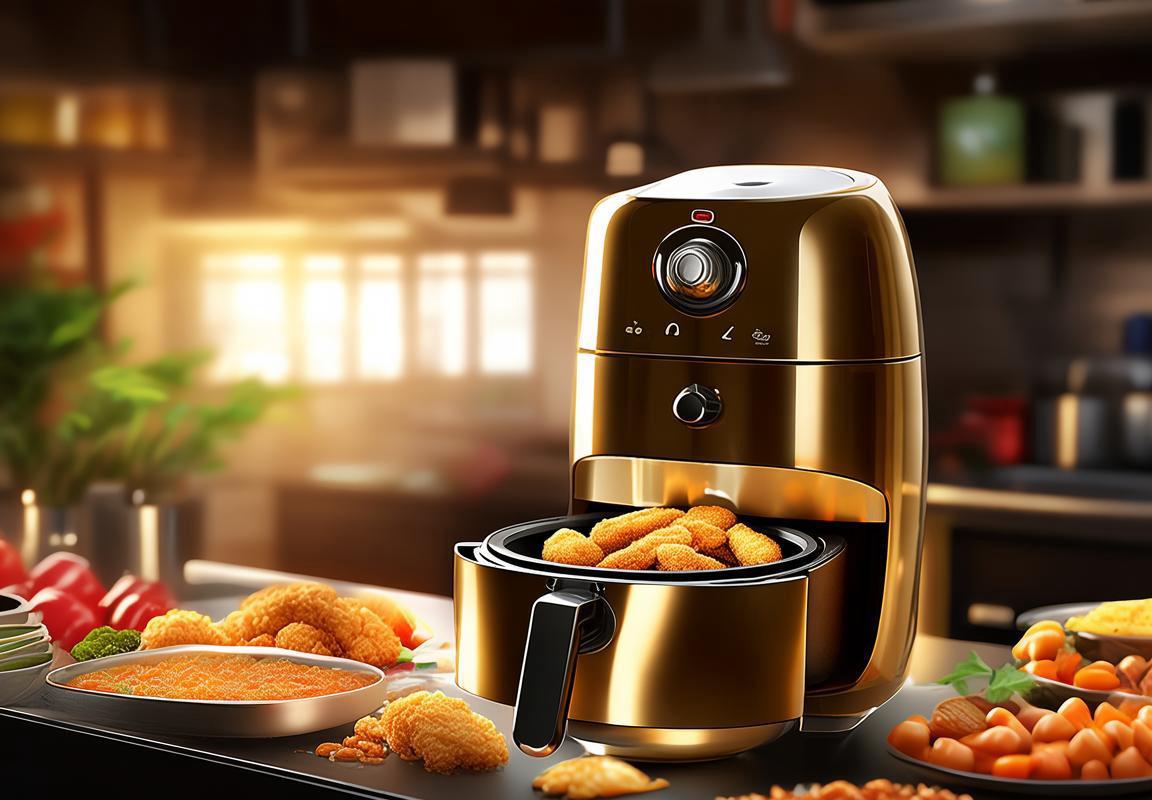
The Role of OEM in Air Fryer Manufacturing
In the ever-evolving world of kitchen appliances, the rise of air fryers has been nothing short of revolutionary. These compact gadgets have transformed the way we cook, offering healthier alternatives to deep-frying. At the heart of this transformation lies the role of Original Equipment Manufacturers (OEMs), who play a pivotal part in shaping the air fryer manufacturing landscape.
OEMs are the architects behind the scenes, crafting the components and assembling the air fryers that consumers around the globe have come to love. Their expertise in design, engineering, and production is crucial in ensuring that each air fryer meets the highest standards of quality and performance.
The first step in the OEM’s role is to understand the market demands. By analyzing consumer trends and technological advancements, OEMs can anticipate what features will resonate with customers. This insight is crucial, as it allows them to tailor their products to meet specific needs, whether that’s a focus on energy efficiency, ease of use, or innovative cooking capabilities.
Once the design is finalized, OEMs take on the task of sourcing high-quality materials. From durable stainless steel to heat-resistant plastics, the choice of materials is critical in ensuring the longevity and safety of the air fryer. This meticulous attention to detail is what sets apart a well-crafted air fryer from a generic one.
Next, OEMs engage in the mold making process, which is a cornerstone of their work. Molds are the tools that shape the plastic components of the air fryer, from the housing to the heating elements. The precision of these molds directly impacts the final product’s quality and functionality. A perfectly engineered mold ensures that every air fryer produced is uniform in size, shape, and performance.
The assembly line is where the magic happens. Skilled workers, guided by the OEM’s meticulous processes, assemble the air fryers piece by piece. This stage requires precision and care, as any error can lead to a defective product. The OEM’s role is to ensure that the assembly process is streamlined, efficient, and error-free.
Quality control is another critical aspect of the OEM’s role. Throughout the manufacturing process, rigorous testing is conducted to ensure that each air fryer meets safety standards and performs as advertised. This includes testing for electrical safety, thermal performance, and durability. The OEM’s commitment to quality is what gives consumers confidence in their purchase.
Customization is another area where OEMs shine. They work closely with brands to develop air fryers that stand out in a crowded market. This might involve integrating new technologies, such as smart connectivity, or creating unique design features that appeal to specific consumer segments. The ability to customize allows brands to differentiate their products and capture the attention of consumers.
In addition to manufacturing, OEMs often provide after-sales support. This includes training for retailers and consumers, ensuring that everyone understands how to use the air fryer safely and effectively. The OEM’s involvement doesn’t end with the manufacturing process; it extends to the entire lifecycle of the product.
As the market for air fryers continues to grow, OEMs are also keeping an eye on the future. They are investing in research and development to create the next generation of air fryers that will not only improve cooking outcomes but also contribute to a more sustainable future. This includes exploring new materials that are recyclable or biodegradable and developing energy-saving technologies.
In conclusion, the role of OEMs in air fryer manufacturing is multifaceted and essential. From conceptualizing and designing the product to sourcing materials, assembling, testing, and providing support, OEMs are the unsung heroes behind the scenes, ensuring that the air fryers we use in our homes are reliable, efficient, and innovative. Their expertise and dedication are what make the air fryer a staple in kitchens worldwide.

The European and American Markets: A Closer Look
In Europe, the kitchen has long been a hub of innovation and culinary tradition. As such, the air fryer has found a unique place within this landscape. From the bustling cities of Paris and Rome to the serene countryside of Sweden and the Netherlands, the air fryer has become a staple in many European households. Its appeal lies in its ability to offer a healthier alternative to traditional deep-frying, while still delivering that crispy texture we all love.
The American market, on the other hand, has seen a different trajectory. Known for its fast-paced lifestyle and love for convenience, the air fryer has been embraced as a time-saving appliance. It’s not uncommon to find this countertop marvel in the kitchens of busy professionals in New York, food enthusiasts in Los Angeles, and families in the heartland of America. The air fryer’s versatility in cooking a wide range of dishes has made it a favorite among those looking to simplify their cooking routines.
In Europe, the air fryer’s popularity is also tied to the health and wellness movement. Many consumers are becoming more conscious of their dietary choices and seeking out appliances that can help them enjoy their favorite foods without the guilt. This has led to a demand for air fryers that offer features like adjustable temperature settings and various cooking programs, catering to everything from chicken to vegetables to desserts.
Similarly, Americans are gravitating towards air fryers for their health benefits. The low-fat, low-calorie cooking method is particularly appealing to those on weight loss journeys or simply looking to incorporate more nutritious meals into their diets. Brands that offer a variety of models, from countertop units to compact, portable options, are meeting this demand head-on.
In Europe, the market is also influenced by the diverse culinary backgrounds of its inhabitants. The continent’s rich tapestry of cultures has led to a preference for air fryers that can handle a wide range of international recipes. This means that European consumers are often looking for models with specific features, such as turbofan technology for even cooking, or non-stick surfaces that make cleaning a breeze.
In the U.S., the market is driven by a culture of innovation and constant technological advancements. Air fryers with smart features, such as Wi-Fi connectivity for remote control and monitoring, are becoming increasingly popular. These devices allow users to monitor their cooking progress from their smartphones, making the air fryer not just a cooking appliance but also a smart kitchen gadget.
Another interesting aspect of the European market is the preference for eco-friendly and sustainable products. As a result, many European air fryer manufacturers are focusing on energy efficiency and sustainable materials. This eco-conscious approach is gaining traction among consumers who are not only health-aware but also environmentally responsible.
In the U.S., while eco-friendliness is important, the market is more focused on the latest technological innovations. From air fryers that can bake, roast, and grill to those with air-fryer lids for steam cooking, the American consumer is always looking for the next big thing. This trend is driving manufacturers to push the boundaries of what an air fryer can do.
The European and American markets also differ in terms of brand loyalty. In Europe, there is a strong preference for well-known brands that have a reputation for quality and reliability. This is reflected in the popularity of brands like Tefal, Philips, and Breville. In contrast, the U.S. market is more open to new and emerging brands, as long as they offer something innovative or unique.
In conclusion, the European and American markets offer a fascinating contrast when it comes to air fryers. While both regions share a common interest in health, convenience, and innovation, the nuances of their respective cultures and lifestyles shape their preferences and demands. Understanding these differences is crucial for manufacturers looking to tap into these dynamic markets and create air fryers that resonate with consumers on both sides of the Atlantic.
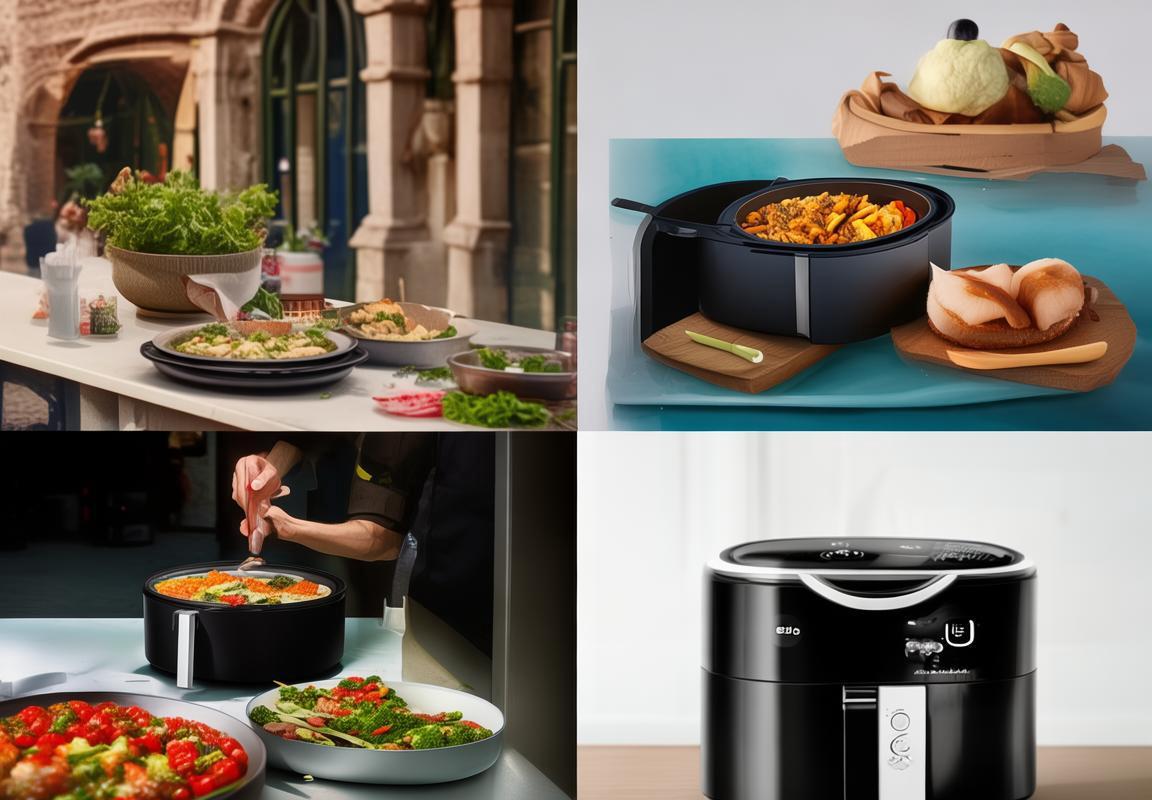
The Importance of Mold Making Service in Air Fryer Production
In the realm of air fryer production, the role of mold making service is akin to the foundation of a sturdy building—it ensures the quality and efficiency of the final product. Here’s a deeper dive into why this service is crucial:
Mold making service is the art of crafting the molds that shape the air fryers we see on store shelves. These molds are the blueprints for the parts that make up the appliance, and their precision is paramount. A single flaw in the mold can lead to inconsistencies in the air fryer’s design, affecting its performance and safety.
The molds used in air fryer production are often complex, with intricate details that must be replicated with exacting precision. The quality of these molds directly impacts the quality of the air fryer’s components. High-quality molds can produce parts that fit together seamlessly, ensuring a durable and reliable appliance.
Innovation in mold making is a game-changer for air fryer manufacturers. Advances in materials and manufacturing techniques have allowed for the creation of molds that can produce parts with finer details and higher tolerances. This means that air fryers can be designed with more innovative features, such as improved heat distribution systems or sleeker, more ergonomic designs.
The process of mold making involves several steps, each critical to the final product. First, the mold is designed using Computer-Aided Design (CAD) software. This digital design is then translated into a 3D model, which guides the creation of the physical mold. The mold itself is typically made from high-strength materials like steel or aluminum, which can withstand the pressures of the molding process.
Once the mold is created, it must be tested to ensure it can produce parts that meet the required specifications. This involves a series of trials and adjustments to fine-tune the mold’s design. The testing phase is crucial, as it can prevent costly mistakes later in the production process.
The cost of mold making can be significant, especially for complex air fryers. However, the initial investment pays off in the long run. High-quality molds can last for years, producing thousands of parts without wearing down. This not only reduces the cost per unit but also ensures consistency in the quality of the air fryers being produced.
Another important aspect of mold making is the ability to customize. Different markets may require variations in air fryer design to cater to specific consumer preferences or regulations. Mold making services can accommodate these needs by creating molds that can be easily modified or adapted for different models and markets.
The precision of mold making also plays a vital role in the efficiency of the production line. Air fryers with parts that fit perfectly together require less time and effort to assemble, leading to faster production cycles and lower labor costs. This efficiency is especially important in today’s fast-paced manufacturing environment.
Moreover, the quality of the mold affects the overall cost of the air fryer. A poorly designed mold can lead to defects in the parts, which may require additional processing or even scrapping. This not only increases the cost of production but also impacts the brand’s reputation for quality.
Lastly, mold making service providers often offer additional value-added services such as mold maintenance and repair. This ensures that the molds remain in optimal condition throughout their lifespan, further enhancing the efficiency and longevity of the air fryer production process.
In conclusion, the mold making service is an indispensable part of air fryer production. It ensures the quality and consistency of the appliance’s components, drives innovation, and ultimately contributes to the overall success of the air fryer brand in the market. The meticulous attention to detail and continuous improvement in mold making are what set apart the best air fryers from the rest.
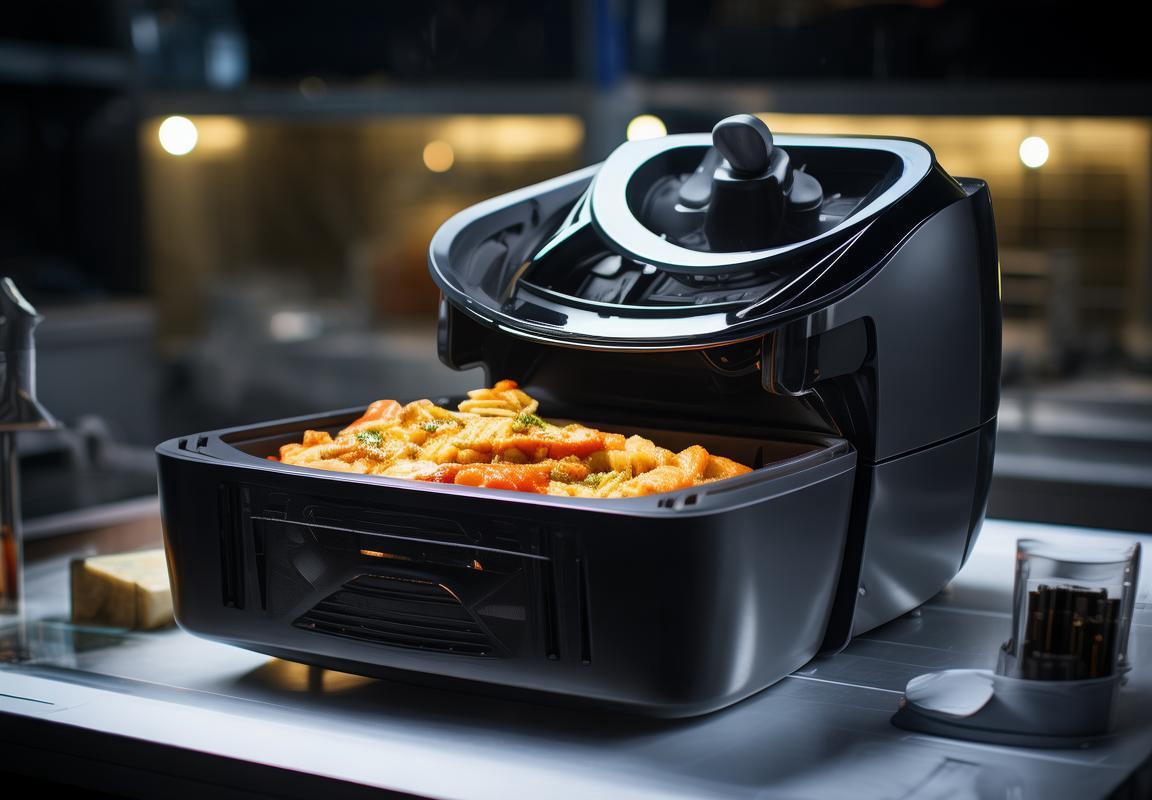
Benefits of Choosing an OEM with Mold Making Service
Navigating the complexities of air fryer production, selecting an Original Equipment Manufacturer (OEM) that offers mold making services can significantly impact the quality and efficiency of the final product. Here are some of the key benefits that come with this strategic choice:
Precision and CustomizationThe mold making service provided by an OEM ensures that the air fryer’s components are crafted with precision. Custom molds can be designed to fit specific product requirements, allowing for unique designs and features that might not be possible with standard molds. This level of customization can make a product stand out in a crowded market.
Reduced Production TimeWhen an OEM offers mold making services, it can often expedite the production process. Since the molds are created in-house, there’s less time spent on outsourcing or waiting for mold creation. This can lead to faster production cycles, which is crucial in a rapidly evolving market where staying ahead of the competition is key.
Cost-Effective SolutionsCreating custom molds can sometimes be perceived as expensive. However, when done by an experienced OEM, the cost can be justified by the long-term savings. Efficient molds can reduce waste, lower the cost of materials, and streamline the assembly process, all of which contribute to a more cost-effective production line.
Enhanced Quality ControlMold making services are not just about creating parts; they are about ensuring the quality of those parts. By having control over the mold-making process, an OEM can maintain consistent quality throughout the production run. This can lead to fewer defects and a higher quality end product, which is vital for customer satisfaction and brand reputation.
Flexibility for Future DesignsThe ability to create custom molds means that an OEM can adapt to changing market trends and customer demands. As new features or designs emerge, the mold can be modified without the need for entirely new molds, providing a flexible production setup that can quickly adjust to market shifts.
Innovation Through CollaborationWhen an OEM with mold making services is involved, there’s a natural opportunity for collaboration. The OEM can work closely with the client to innovate and develop new products. This partnership can lead to the creation of cutting-edge air fryers that push the boundaries of what’s currently available on the market.
Reduced Lead TimesLead times are critical in the air fryer industry, where consumer demand can fluctuate rapidly. An OEM with in-house mold making services can significantly reduce the lead times associated with production. This means that companies can respond more quickly to orders and market changes, ensuring they always have the inventory they need to meet demand.
Expertise in Materials and ProcessesOEMs that offer mold making services have a deep understanding of the materials and manufacturing processes required to produce high-quality air fryers. This expertise ensures that the molds are not only well-designed but also optimized for the materials being used, leading to stronger, more durable products.
Scalability for GrowthAs a company grows, its production needs can expand exponentially. An OEM with mold making capabilities can scale up production efficiently. Whether it’s a small batch run or a large-scale production, the ability to adapt and maintain quality is a significant advantage.
Streamlined Supply ChainBy working with an OEM that provides mold making services, companies can streamline their supply chain. The integration of design, mold making, and production under one roof eliminates the need for multiple suppliers, simplifying logistics and reducing the risk of supply chain disruptions.
Long-Term PartnershipsChoosing an OEM with mold making services can foster long-term partnerships. These relationships are built on trust, shared goals, and a mutual understanding of the product’s lifecycle. Over time, this can lead to a more cohesive and efficient production process, with both parties contributing to the product’s success.

Case Studies: Successful OEM Air Fryer Partnerships
In the competitive landscape of the air fryer market, partnerships between Original Equipment Manufacturers (OEMs) and brands have proven to be pivotal. Here are a few case studies highlighting the successes of such collaborations:
The Italian Bakery’s Innovation BreakthroughWhen the Italian Bakery, a staple in the European culinary scene, sought to expand its product line, they turned to an OEM with mold-making expertise. The result was a sleek, high-performance air fryer that mimicked the look of traditional Italian cookware. The tailored mold-making service allowed the bakery to create a unique design that resonated with their target market, leading to a significant increase in sales and brand recognition.
The California Startup’s Rapid Growth StoryA young startup in California aiming to disrupt the health-conscious American market had a vision for an eco-friendly air fryer. They partnered with an OEM that not only manufactured but also offered mold-making services. The collaboration resulted in a product that was not only efficient and durable but also designed with sustainability in mind, using recycled materials. This unique selling proposition helped the startup gain a strong foothold in the market, attracting both environmentally conscious consumers and tech enthusiasts.
The South Korean Gourmet’s Global ExpansionThe South Korean gourmet brand, known for its sophisticated appliances, was looking to enter the air fryer market. By partnering with an OEM that excelled in mold making, they were able to produce a line of air fryers that seamlessly integrated with their existing kitchen appliances. The precision and craftsmanship of the molds allowed the brand to offer a cohesive range that received glowing reviews, propelling them into new international markets.
The German Health Giant’s Market DominationA leading health and wellness company in Germany was looking to diversify its product portfolio. They chose an OEM with advanced mold-making capabilities to create a range of air fryers that catered to various dietary needs, including gluten-free and low-fat options. The meticulous attention to detail in the molds resulted in a product that not only looked impressive but also performed exceptionally well. The brand quickly dominated the German market and expanded to neighboring countries.
The Asian Tech Giant’s New Product LineAn established Asian tech giant decided to venture into the home appliances sector with air fryers. They partnered with an OEM that specialized in mold making to ensure the highest quality standards. The molds were designed to accommodate various sizes and functionalities, from compact countertop models to larger, commercial-grade units. This strategic move allowed the tech giant to launch a diverse product line that catered to a wide range of consumer needs, boosting their market share and reputation.
The Brazilian Entrepreneur’s Market Entry StrategyA Brazilian entrepreneur wanted to bring a new twist to the air fryer market with a product that was both stylish and affordable. They worked with an OEM that provided mold-making services to create a unique, aerodynamic design that was both visually appealing and functional. The molds allowed for precise detailing and efficient production, which helped the entrepreneur launch a successful product that quickly gained popularity, especially among budget-conscious consumers.
These case studies illustrate how OEM partnerships with mold-making services can lead to innovative products that not only meet but exceed consumer expectations. The ability to tailor designs and ensure quality production is a game-changer for brands looking to make a mark in the dynamic air fryer market.
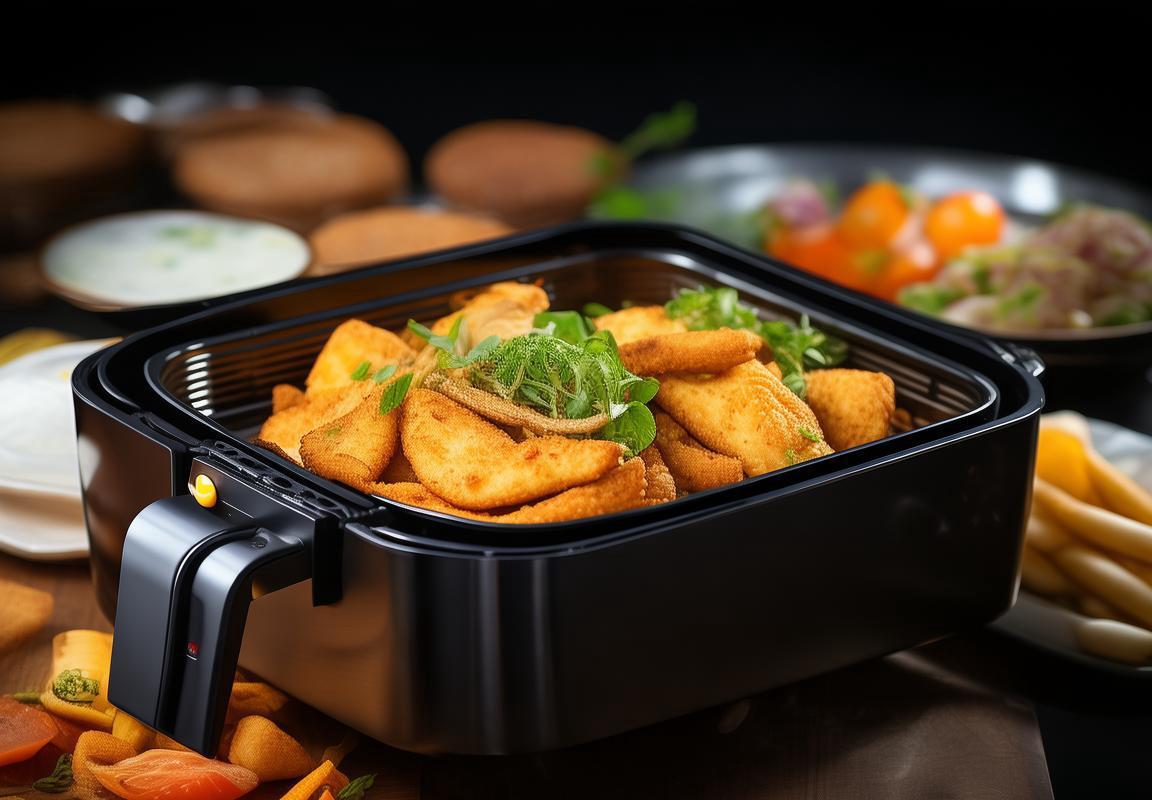
A European Brand’s Journey to Market Leadership
In a bustling European city, a small, innovative kitchen appliance brand embarked on a remarkable journey to become a market leader. What started as a modest venture in a crowded industry has now turned into a story of perseverance, innovation, and strategic partnerships. Here’s how they did it.
The brand, known for its sleek designs and eco-friendly ethos, began by focusing on the burgeoning demand for healthier cooking alternatives. As air fryers started gaining popularity, they saw an opportunity to cater to consumers looking for a healthier way to enjoy their favorite fried foods. They approached a reputable Original Equipment Manufacturer (OEM) to bring their vision to life.
The OEM, with a strong reputation for precision and quality, provided the brand with custom mold-making services. This collaboration allowed the brand to create air fryers that were not only efficient and safe but also uniquely designed to appeal to the European market’s aesthetic preferences. The mold-making process was a pivotal step, as it enabled the brand to differentiate its products in a competitive landscape.
As the products were developed, the brand launched a targeted marketing campaign that highlighted the health benefits of air frying. They emphasized the reduction in oil usage, which was a significant draw for health-conscious consumers. The campaign resonated with the public, and sales began to soar.
The brand also recognized the importance of distribution channels. They partnered with local retailers and online platforms to ensure their air fryers were easily accessible to consumers across Europe. This strategic move helped in building brand recognition and trust.
Innovation didn’t stop there. The brand continued to invest in research and development, introducing features like smart controls and energy-saving modes. They even collaborated with chefs to develop recipes that maximized the air fryer’s capabilities, encouraging customers to explore new culinary adventures.
One of the key factors in their rise to the top was their commitment to sustainability. The brand used recycled materials for their packaging and ensured that their production processes were environmentally friendly. This approach not only appealed to eco-conscious consumers but also set them apart from competitors.
As word spread, the brand started to receive international accolades. They were featured in major European lifestyle magazines and appeared at international trade shows, gaining the attention of global buyers. This international exposure opened doors to new markets, and the brand began exporting their products to Asia and the Americas.
The brand’s success story didn’t go unnoticed by industry leaders. They were approached by potential investors who saw the potential for expansion. With this new capital, the brand was able to increase production capacity and invest further in product development.
One notable milestone was the introduction of a line of air fryers designed specifically for professional kitchens. This move catered to a new segment of the market and allowed the brand to diversify its offerings. The professional-grade line was a hit, with chefs and restaurants praising the performance and reliability of the appliances.
As the brand continued to grow, they maintained a focus on customer satisfaction. They established a robust customer service team to address inquiries and issues promptly. This dedication to customer care helped in building a loyal customer base, with many customers becoming brand advocates.
Today, the once small kitchen appliance brand has become a household name in Europe. Their journey from a local startup to a market leader is a testament to the power of innovation, strategic partnerships, and a deep understanding of consumer needs. It’s a story that inspires other entrepreneurs to dream big and work tirelessly towards their goals.
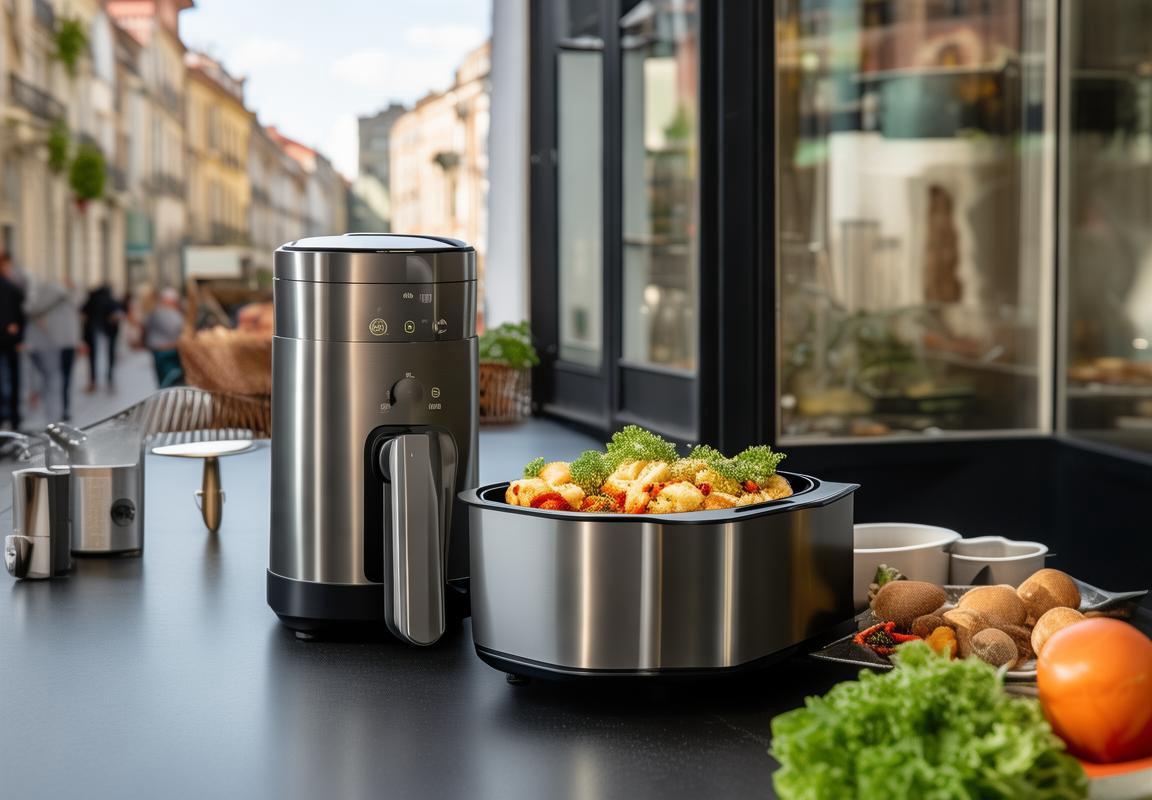
An American Startup’s Rapid Growth with OEM Support
The founders of EcoCook, a promising American startup, found themselves at a pivotal crossroads in the kitchen appliance industry. With a vision for innovative, eco-friendly appliances, they sought out OEM partners to turn their ideas into market-ready products. The journey of EcoCook’s rapid growth with OEM support is a testament to strategic partnerships and a focus on sustainability.
In the early stages, EcoCook’s team was eager to bring their concept to life but lacked the in-house capabilities to design and manufacture their air fryers. Recognizing the importance of a reliable OEM partner, they embarked on a search for a company that could not only produce high-quality air fryers but also share their commitment to the environment.
After careful consideration, EcoCook partnered with GreenTech Molding, a company known for their expertise in creating custom molds and their commitment to sustainable practices. This collaboration marked a turning point for EcoCook, as they began to see their vision take shape.
The partnership with GreenTech Molding allowed EcoCook to focus on their core competencies, such as product design and marketing, while leaving the manufacturing and mold-making processes to experts. GreenTech Molding’s state-of-the-art facilities and skilled engineers ensured that each air fryer met the stringent quality standards set by EcoCook.
As the EcoCook brand began to gain traction, their air fryers started to capture the attention of consumers who were looking for healthier alternatives to traditional cooking methods. The sleek design, coupled with the eco-friendly aspect of the appliance, resonated with a growing market segment.
The OEM support from GreenTech Molding was instrumental in EcoCook’s rapid growth. Their ability to produce large quantities of air fryers without compromising on quality was a key factor in meeting the increasing demand. The efficiency of GreenTech Molding’s production line allowed EcoCook to scale up quickly, ensuring a steady supply of products to retailers and online platforms.
One of the standout features of EcoCook’s air fryers was their unique modular design, which allowed consumers to upgrade components as technology evolved. This forward-thinking approach was a direct result of the OEM’s expertise in mold-making, enabling EcoCook to create custom parts that fit seamlessly into their products.
As EcoCook expanded their product line, GreenTech Molding’s mold-making service continued to be a crucial asset. From creating the initial molds for the air fryers to developing new components for future models, the OEM’s ability to adapt and innovate was a significant driver of EcoCook’s growth.
The success of EcoCook’s partnership with GreenTech Molding can be seen in the brand’s market share and consumer loyalty. EcoCook’s air fryers became a staple in eco-conscious households, and the brand’s reputation for quality and innovation grew stronger with each new product launch.
One of the most notable milestones for EcoCook was the introduction of their signature “SmartAir” air fryer, which featured a built-in smart technology that allowed users to control their appliances remotely. The complex design of the SmartAir fryer required precise mold-making, which GreenTech Molding delivered with precision, ensuring that every unit met the high standards set by EcoCook.
As the American market embraced EcoCook’s products, the startup started to attract international attention. Their partnership with GreenTech Molding not only helped them dominate the domestic market but also paved the way for successful expansions into Europe and Asia.
In the world of kitchen appliances, EcoCook’s story stands out as a prime example of how a startup can achieve rapid growth with the right OEM support. By leveraging the expertise of GreenTech Molding in mold-making and production, EcoCook was able to focus on what they did best—developing innovative, eco-friendly appliances that resonated with consumers worldwide.
Today, EcoCook remains a leader in the air fryer market, with a diverse product line that continues to push the boundaries of what’s possible in kitchen technology. The journey of an American startup’s rapid growth with OEM support is a shining example of how strategic partnerships can lead to significant success in a highly competitive industry.
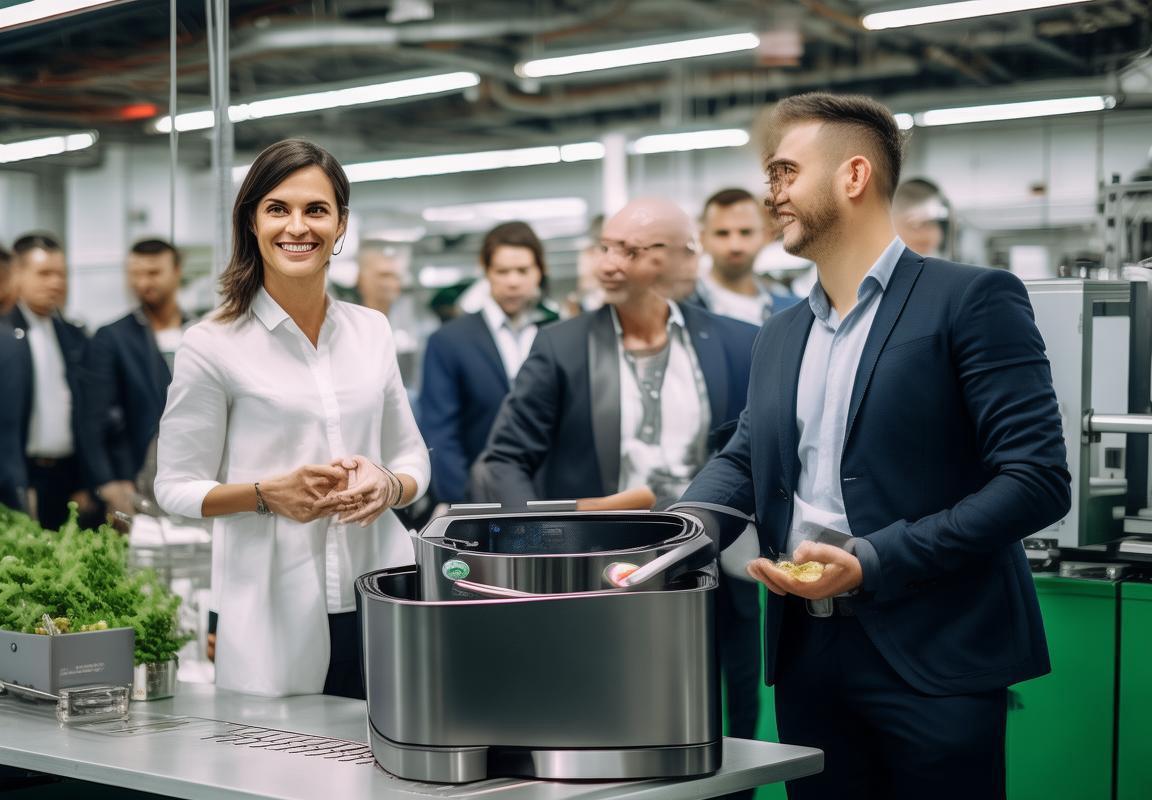
Future Outlook: Trends and Predictions for the Air Fryer Market
In the ever-evolving landscape of kitchen appliances, air fryers have emerged as a standout favorite, particularly in the realms of health-conscious cooking and convenience. As we look ahead, several trends and predictions are shaping the future of the air fryer market, poised to transform how we perceive and use these devices.
The surge in demand for healthier cooking methods has spurred innovation, with manufacturers focusing on air fryers that offer more than just fried food without the guilt. Smart features, such as Bluetooth connectivity and recipe integration, are becoming standard, allowing users to cook with precision and ease. Predictions suggest that these features will become even more sophisticated, with the potential for air fryers to become integral parts of smart home ecosystems.
One key trend is the emphasis on sustainability and eco-friendliness. Consumers are increasingly seeking products that are not only good for their health but also for the environment. This shift has led to the development of air fryers made from recyclable materials, and with energy-efficient designs that reduce overall carbon footprint. The market is expected to see a rise in certifications that guarantee the eco-friendly credentials of these appliances.
The integration of health tech into kitchen appliances is another area of growth. Air fryers are likely to become more personalized, with features that tailor cooking times and temperatures to individual health goals or dietary preferences. Nutritional analysis and fitness tracking could become integrated, creating a holistic approach to health and cooking.
Smart functionality isn’t just about connectivity; it’s also about convenience. Voice control and app-based interfaces are becoming more prevalent, allowing users to manage their air fryers with minimal effort. As these technologies advance, we might see a future where air fryers can not only cook but also provide real-time cooking tips and meal planning assistance.
Innovation in cooking technology is leading to more diverse and versatile air fryers. The traditional model is expanding to include attachments and modular systems that can cater to various cooking needs. This trend is expected to continue, with air fryers potentially becoming all-in-one cooking stations that can replace multiple appliances.
Another important trend is the expansion of the market to include new demographics. While initially popular among young, health-conscious consumers, air fryers are increasingly appealing to older demographics looking for ease of use and health benefits. As these consumers become more tech-savvy, they are embracing smart appliances, which could further drive market growth.
As the air fryer market continues to grow, so does the competition. Brands are not just competing on features and price; they’re also vying for market share by establishing strong brand identities and customer loyalty. This competition is leading to a rise in marketing strategies that focus on the benefits of air fryers, from health to convenience, and sustainability.
The global nature of the market is also a significant factor. With the rise of online shopping and cross-border trade, air fryers are becoming more accessible to consumers worldwide. This global reach is opening up new markets, particularly in regions where traditional cooking methods are prevalent, and where there is a growing interest in healthier lifestyles.
Finally, regulatory changes and safety standards are playing a crucial role in shaping the future of the air fryer market. As these appliances become more integrated into everyday life, there is an increased focus on ensuring they meet stringent safety and health regulations. This could lead to new certifications and standards that all air fryer manufacturers must adhere to.
In conclusion, the air fryer market is on the brink of exciting changes, driven by technological innovation, consumer demand for health and sustainability, and the global expansion of the market. As these trends and predictions play out, we can expect to see a wide array of air fryers that not only meet our culinary needs but also align with our values and lifestyles.
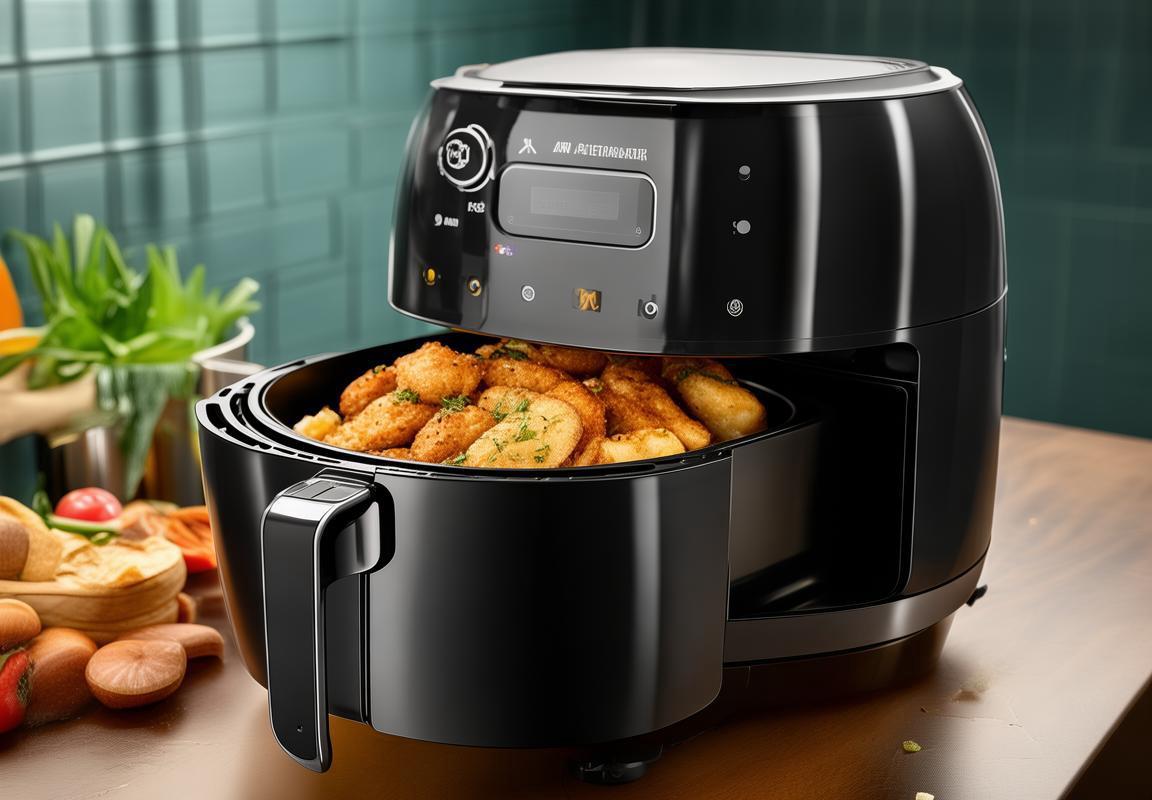
Conclusion: Why OEM Air Fryers with Mold Making Service Are Key
In the competitive landscape of kitchen appliances, OEM air fryers with mold making services have emerged as a pivotal component for brands aiming to stand out. These partnerships offer a unique blend of customization, efficiency, and quality that can significantly impact a company’s market position. Let’s delve into the reasons why these air fryers are becoming the cornerstone of success in the industry.
The Customization EdgeOEM air fryers with mold making services provide brands with the ability to tailor their products to meet specific market demands. By crafting molds that align with the brand’s vision and consumer preferences, manufacturers can produce air fryers that are not just functional but also aesthetically pleasing and innovative. This level of customization allows brands to create a unique identity in a crowded market.
Quality Control Through PrecisionThe precision of mold making is paramount in air fryer production. A well-crafted mold ensures that each air fryer is uniform in design and functionality, which is crucial for maintaining a high standard of quality. This attention to detail can lead to fewer defects and a longer lifespan for the product, enhancing customer satisfaction and loyalty.
Cost-Effective ProductionWhen brands opt for OEM air fryers with mold making services, they often benefit from economies of scale. The production process becomes more streamlined, reducing costs associated with tooling and manufacturing. This cost-effectiveness can be passed on to consumers, making the product more accessible and competitive in the market.
Rapid Innovation and Market ResponsivenessThe flexibility offered by mold making services allows for quick adaptations to market trends. Brands can rapidly develop new models or modify existing designs to respond to consumer demands or technological advancements. This agility is crucial in a market where innovation is a key driver of success.
Sustainability and Eco-Friendly DesignsAs environmental concerns grow, the ability to produce air fryers with sustainable materials and eco-friendly designs becomes increasingly important. OEM partners with mold making services can help brands integrate these elements into their products, appealing to a growing segment of eco-conscious consumers.
Brand DifferentiationIn a market where generic air fryers are abundant, differentiation is key. OEM air fryers with mold making services enable brands to create unique features and designs that set them apart. This differentiation can be a significant factor in brand loyalty and customer retention.
Global Market ExpansionFor brands looking to expand into new markets, OEM air fryers with mold making services can be instrumental. The ability to customize products for different cultural preferences and local regulations can open doors to international success. This global approach allows brands to cater to diverse markets without compromising on quality.
Long-Term Strategic PartnershipsThe relationships formed with OEM partners who offer mold making services are often long-term. These partnerships are built on trust, shared goals, and a mutual understanding of the market. Such strategic alliances can lead to sustained growth and a competitive advantage over time.
Customer Satisfaction and TrustUltimately, the success of any product hinges on customer satisfaction. OEM air fryers with mold making services contribute to this satisfaction by delivering high-quality, reliable appliances. When customers trust the brand, they are more likely to become repeat buyers and brand advocates.
In conclusion, OEM air fryers with mold making services are not just a product; they are a strategic asset for brands aiming to thrive in the dynamic kitchen appliance market. The combination of customization, quality, cost-effectiveness, and innovation makes these air fryers a cornerstone of success, allowing brands to not only meet but exceed consumer expectations.